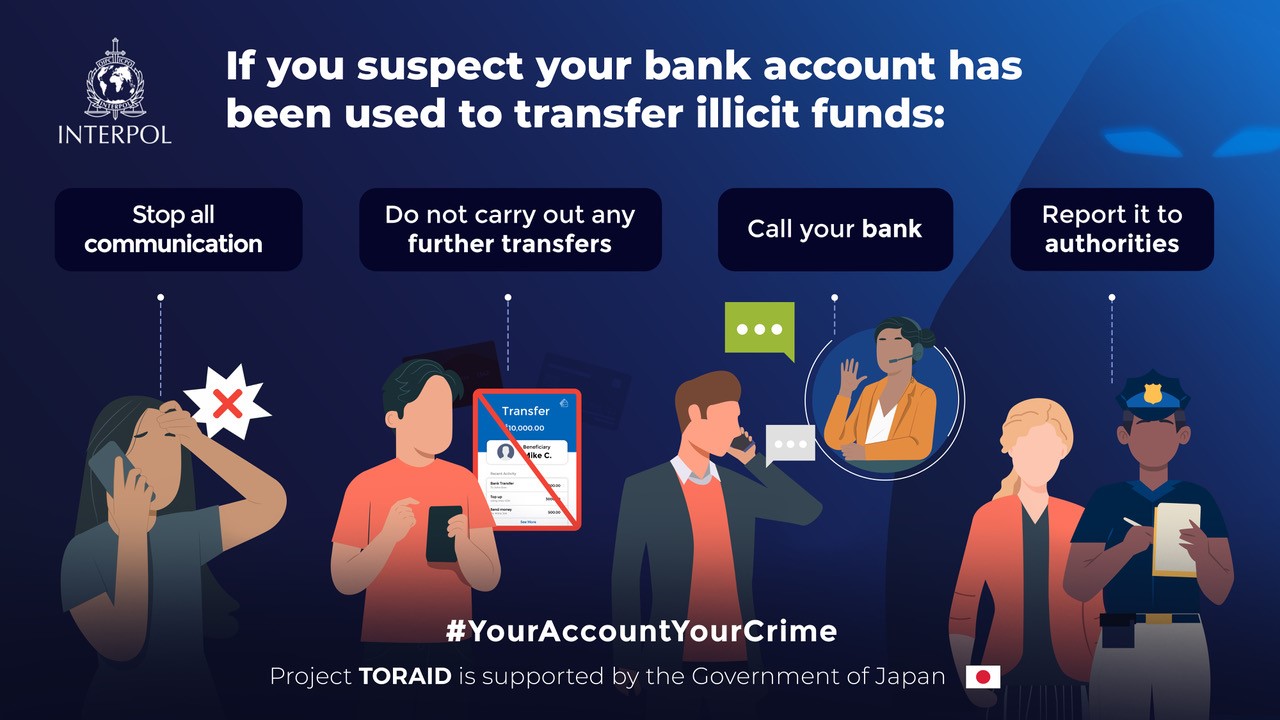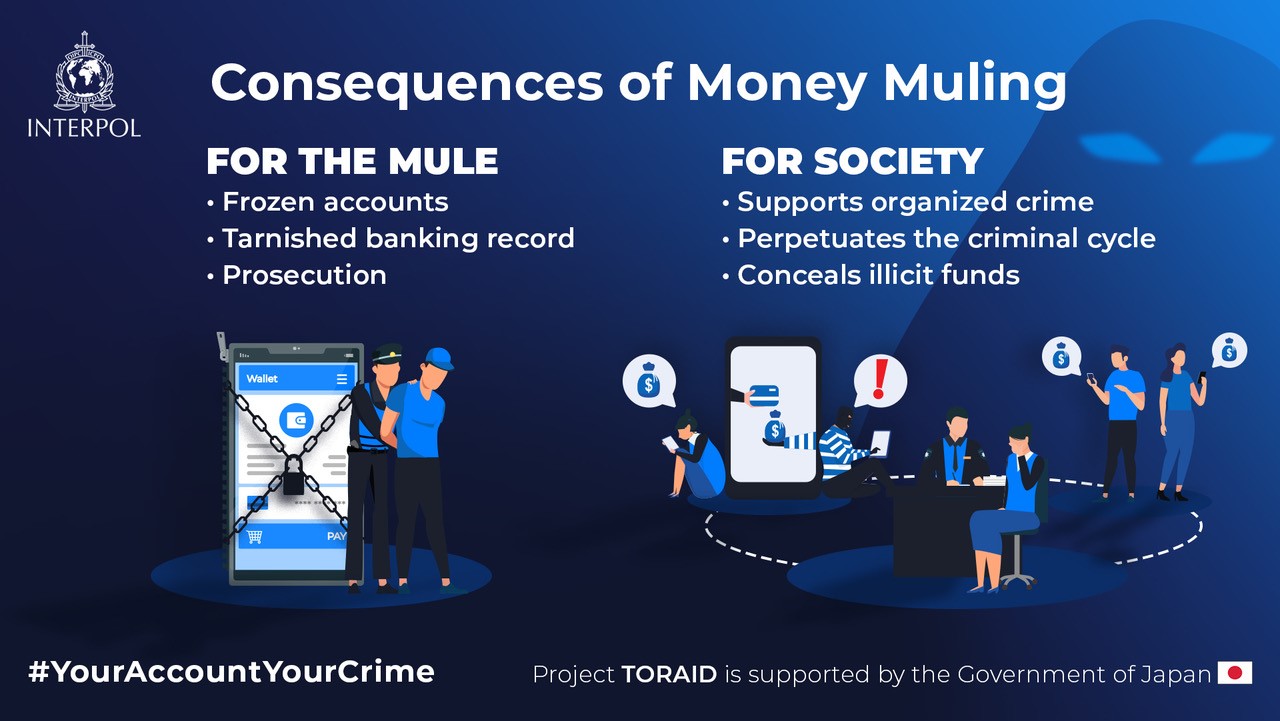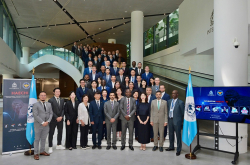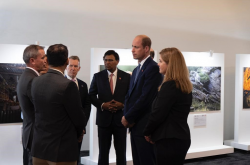LYON, France – INTERPOL’s Financial Crime and Anti-Corruption Centre (IFCACC) is launching a global awareness campaign today in order to highlight the massive use of money mules in facilitating the movement of criminal proceeds.
Money mules are people recruited by criminals, often unwittingly, to transfer funds on their behalf and launder their illicit profits.
In May, as a result of operational and analytical support provided to its member countries, INTERPOL published a Purple Notice warning of the growing use of money mule ‘herders’, who regularly seek blanket authorizations to use the personal accounts of victims as their own.
The campaign hashtag, #YourAccountYourCrime, clearly reminds the general public that they are responsible for keeping their accounts safe and that there are consequences for moving money on behalf of a third party.
The two-week campaign (10-26 August 2022) will run on social media and be supported by 34 countries worldwide.
The campaign will explain how to stay safe - and out of the criminal cycle – by exploring:
- how money muling works
- how to avoid becoming a victim
- the risks associated with money muling
In most cases, money mules are recruited as part of wider scams in order to escape the audit trail, adding layers by moving the money further and further away from the original crime.
Just this week, the suspected ringleader of an international romance scam network was returned to Japan from Ghana to face prosecution. He is alleged to have swindled 400 million yen (USD 3 million) using fake female profiles on matchmaking apps. As part of the IFCACC-supported investigation, police arrested a further 15 accomplices, many of whom were money mules.
Stephen Kavanagh, INTERPOL’s Executive Director of Police Services, said: “Criminals will go to great lengths to recruit money mules, because they play an essential role in distancing themselves from authorities and escaping detection. Money mule schemes can be disguised as employment, romantic relationships or investments, or simply as helping out a friend.
“At the end of the day, however, moving money for someone else, especially across borders, is risky business. Money mules, whether complicit or not, help perpetuate the criminal cycle and could face prosecution,” said Mr. Kavanagh.
This campaign has been developed as part of INTERPOL’s Project TORAID, which aims to strengthen global safety and security by enhancing law enforcement capabilities to address a wide spectrum of financial crimes. It is funded by the Government of Japan.













